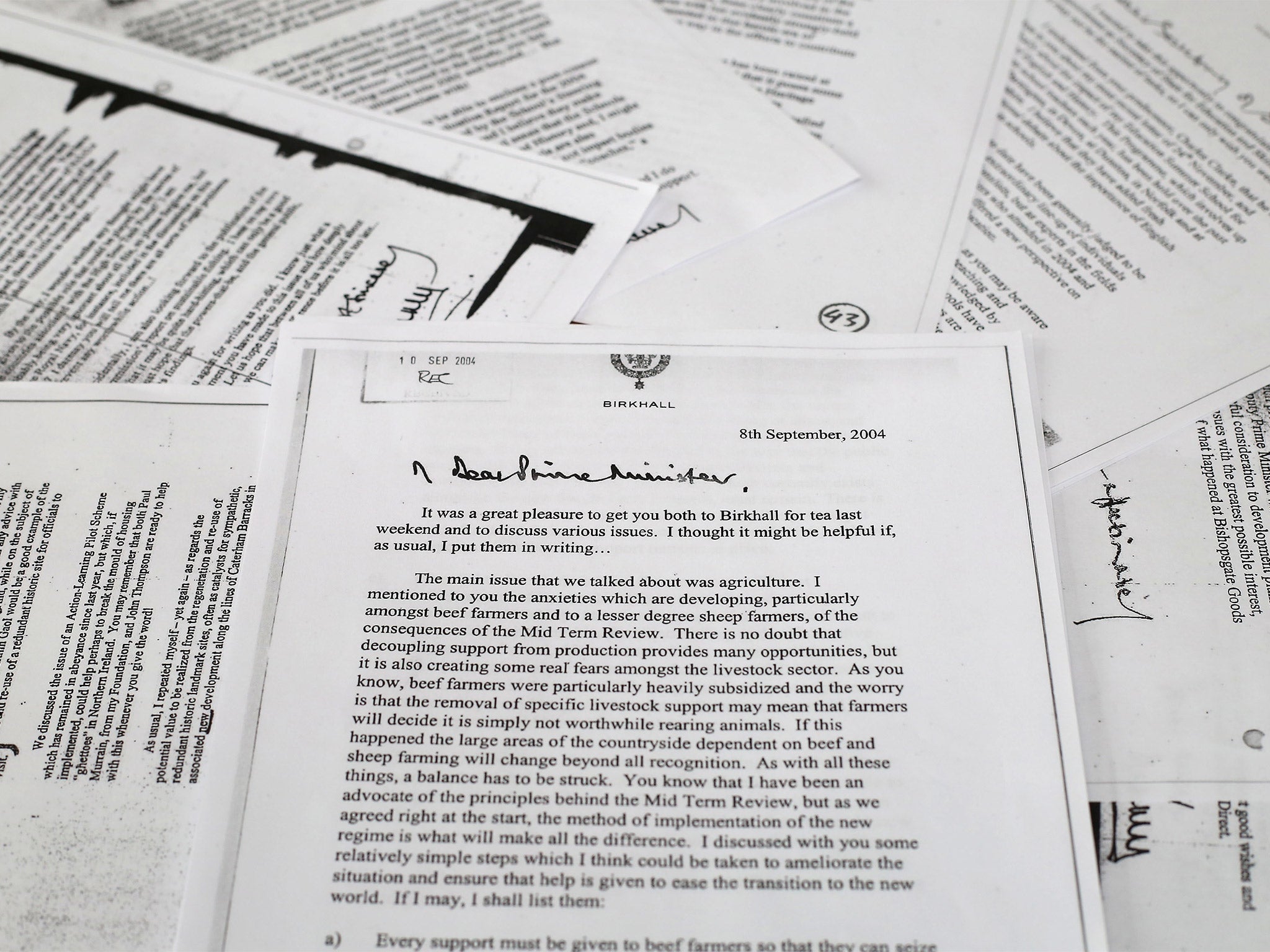Prince Charles 'black spider' memos indicate Prince could have influenced government policy over alternative medicine
Charles wasn't backwards about being forward on the subject

Your support helps us to tell the story
From reproductive rights to climate change to Big Tech, The Independent is on the ground when the story is developing. Whether it's investigating the financials of Elon Musk's pro-Trump PAC or producing our latest documentary, 'The A Word', which shines a light on the American women fighting for reproductive rights, we know how important it is to parse out the facts from the messaging.
At such a critical moment in US history, we need reporters on the ground. Your donation allows us to keep sending journalists to speak to both sides of the story.
The Independent is trusted by Americans across the entire political spectrum. And unlike many other quality news outlets, we choose not to lock Americans out of our reporting and analysis with paywalls. We believe quality journalism should be available to everyone, paid for by those who can afford it.
Your support makes all the difference.The letters offer tantalising evidence that it was within the realm of Prince Charles’s longstanding interest in homeopathy and alternative medicine that the heir to the throne was able to wield tangible influence over government policy.
In a missive to Prime Minister Tony Blair written in February 2005, the prince raises a European Union directive on complementary medicine which he said would have the effect of banning a number of herbal extracts.
The four-page letter seeks to summarise a recent meeting between Charles and Mr Blair, in which the prince suggests that they had both agreed the Brussels directive was “a sledgehammer to crack a nut” and the Prime Minister had “rightly asked me what could be done about it”.
The letters make it plain that the prince was not backwards in being forward to ministers about one of his best-known obsessions.
A separate letter in February 2005 from then Health Secretary John Reid makes clear the government’s support for another issue pushed by Charles - the introduction of a regulatory authority for complementary therapies.

The Complementary and Natural Healthcare Council, dubbed “OfQuack” by commentators, was eventually announced in 2008 as a voluntary body for practitioners with the help of a £1.1m grant from the Department for Health.
But it is in the response from Mr Blair that the ability of the heir to the throne to elicit immediate action from the highest office of the British state seems to be made clear.
Writing in March 2005, Mr Blair defends the directive as “sound” but adds that he agrees its proposed implementation is “crazy”. He adds: “We can do quite a lot here: we will delay implementation for all existing products to 2001; we will take more of the implementation upon ourselves.”
The Labour prime minister then undertakes to ensure that a charity set up by the prince to promote alternative medicine - the Foundation for Integrated Health - is included in helping to decide government action.
Mr Blair wrote: “We will be consulting with your contacts and others on the best way to do this - we simply cannot have burdensome regulation here.”
Further material in the letter from Mr Blair is marked “redacted”.
Clarence House said the prince had been echoing the concern of many practitioners and patients about the directive and had been seeking “an appropriate regulatory regime with the dual purpose of preserving choice of practitioner and product, while also maximising patient safety.”
Join our commenting forum
Join thought-provoking conversations, follow other Independent readers and see their replies
Comments